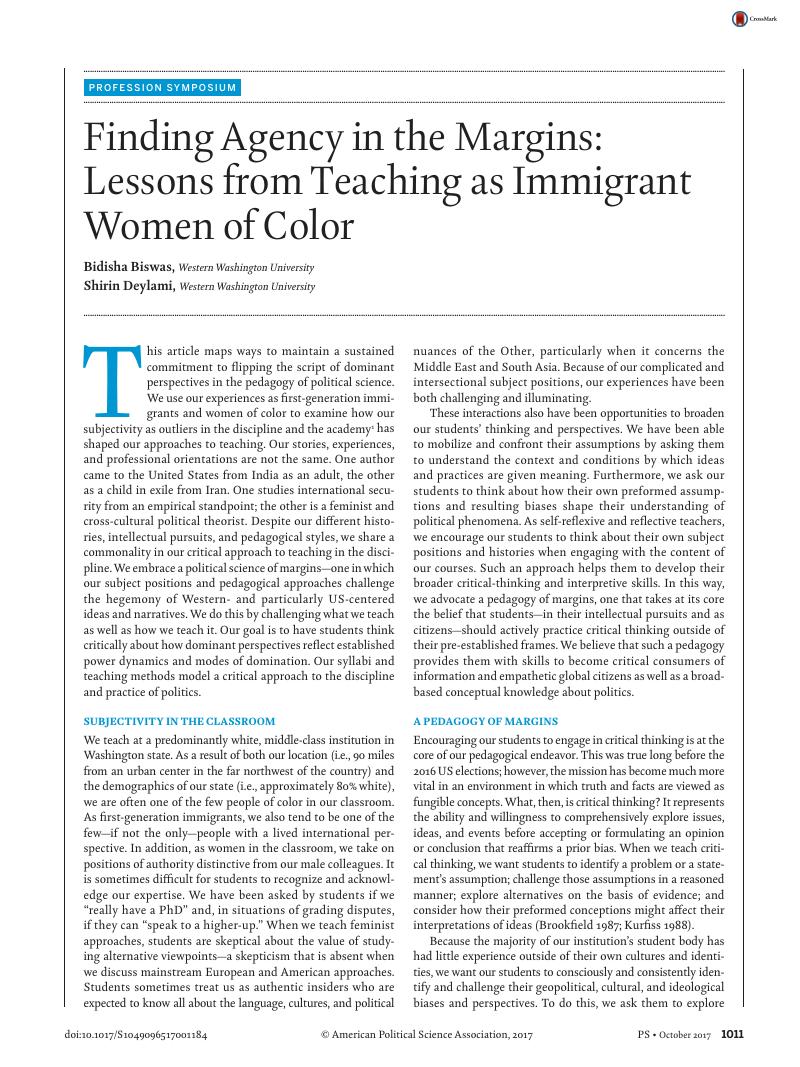Crossref Citations
This article has been cited by the following publications. This list is generated based on data provided by Crossref.
Sanger, Catherine Shea
2020.
Diversity and Inclusion in Global Higher Education.
p.
1.
Loke, Beverley
and
Owen, Catherine
2022.
Mapping practices and spatiality in IR knowledge production: from detachment to emancipation.
European Journal of International Relations,
Vol. 28,
Issue. 1,
p.
30.
Rosen, Amanda M.
2024.
Teaching Political Science: A Practical Guide for Instructors.
p.
49.



